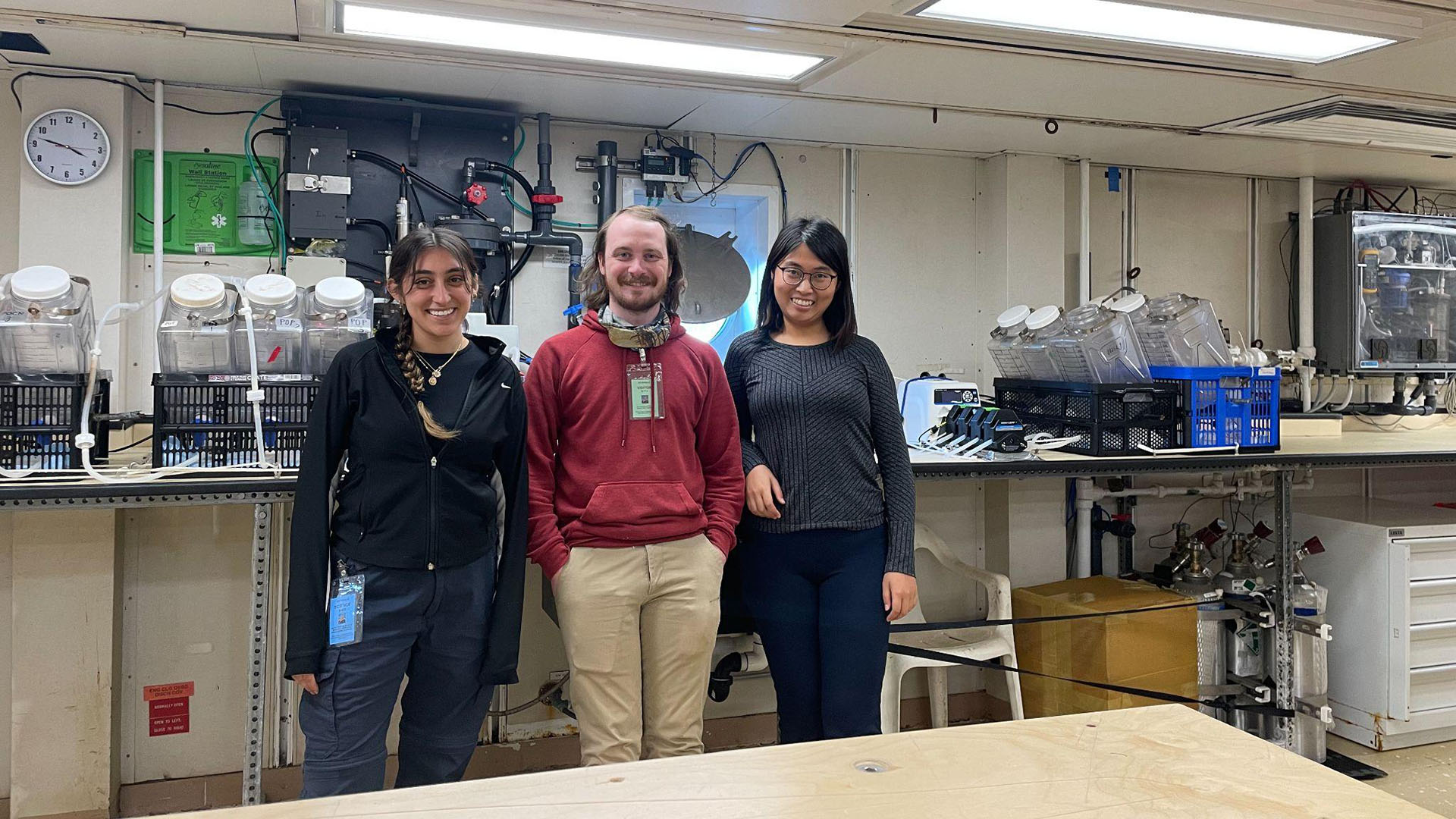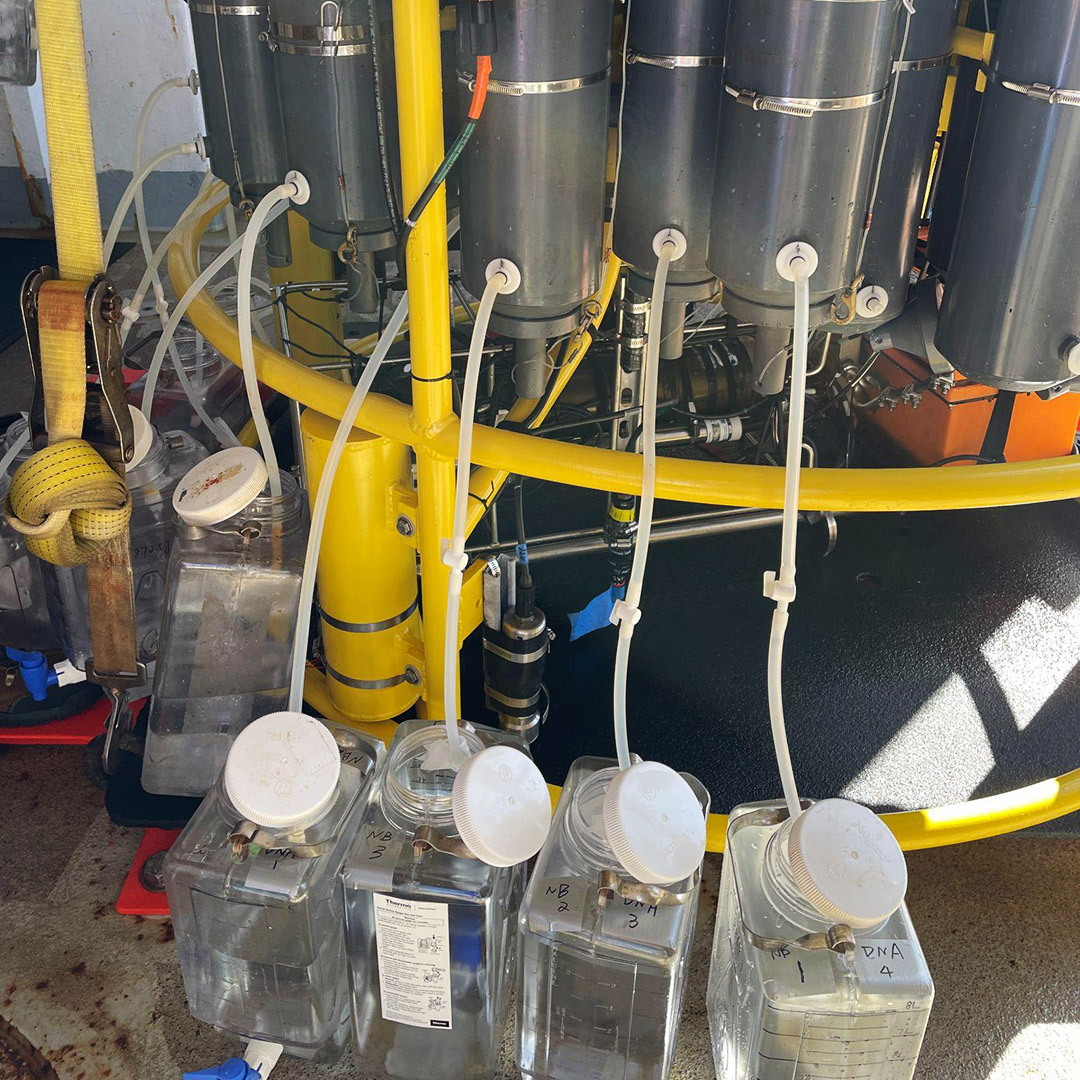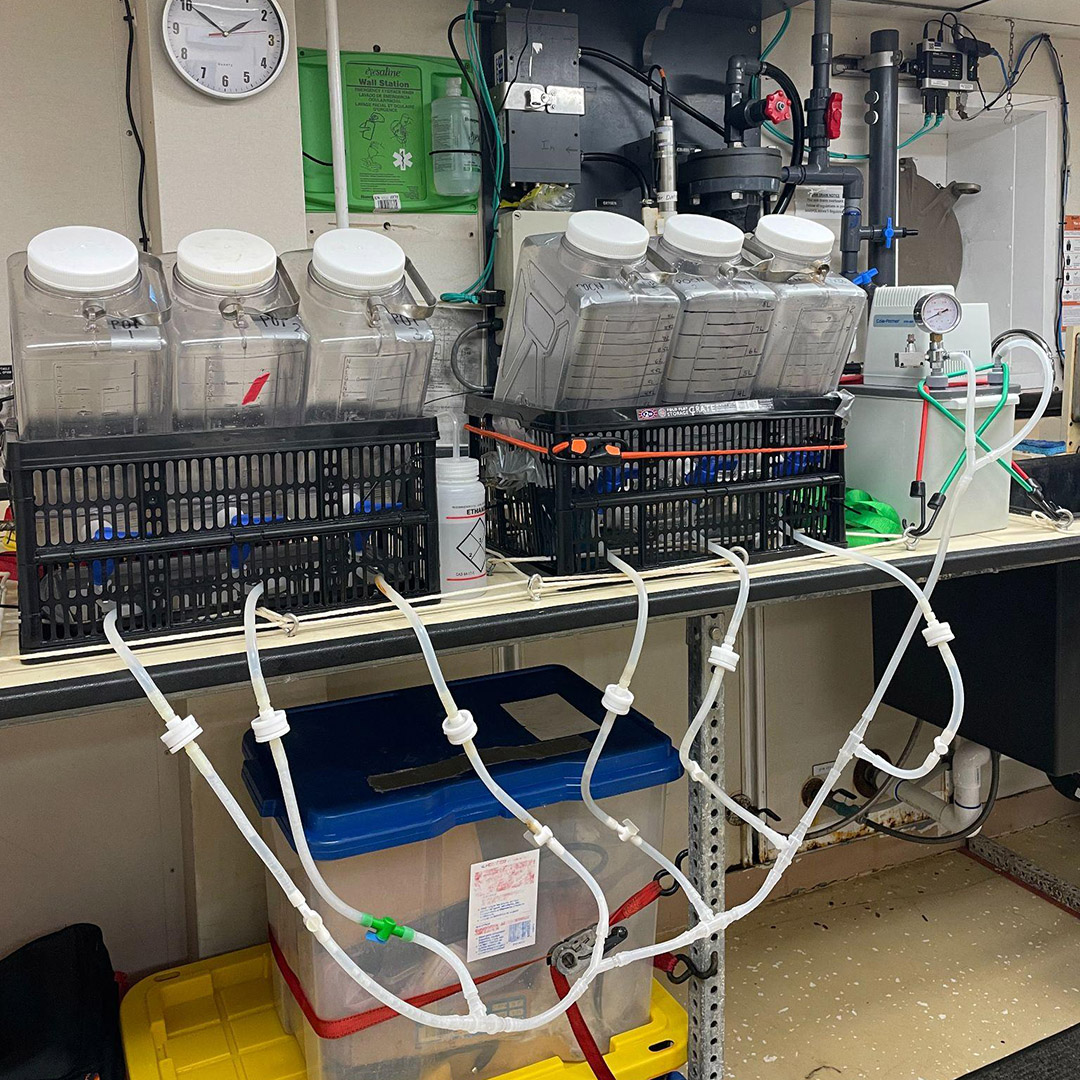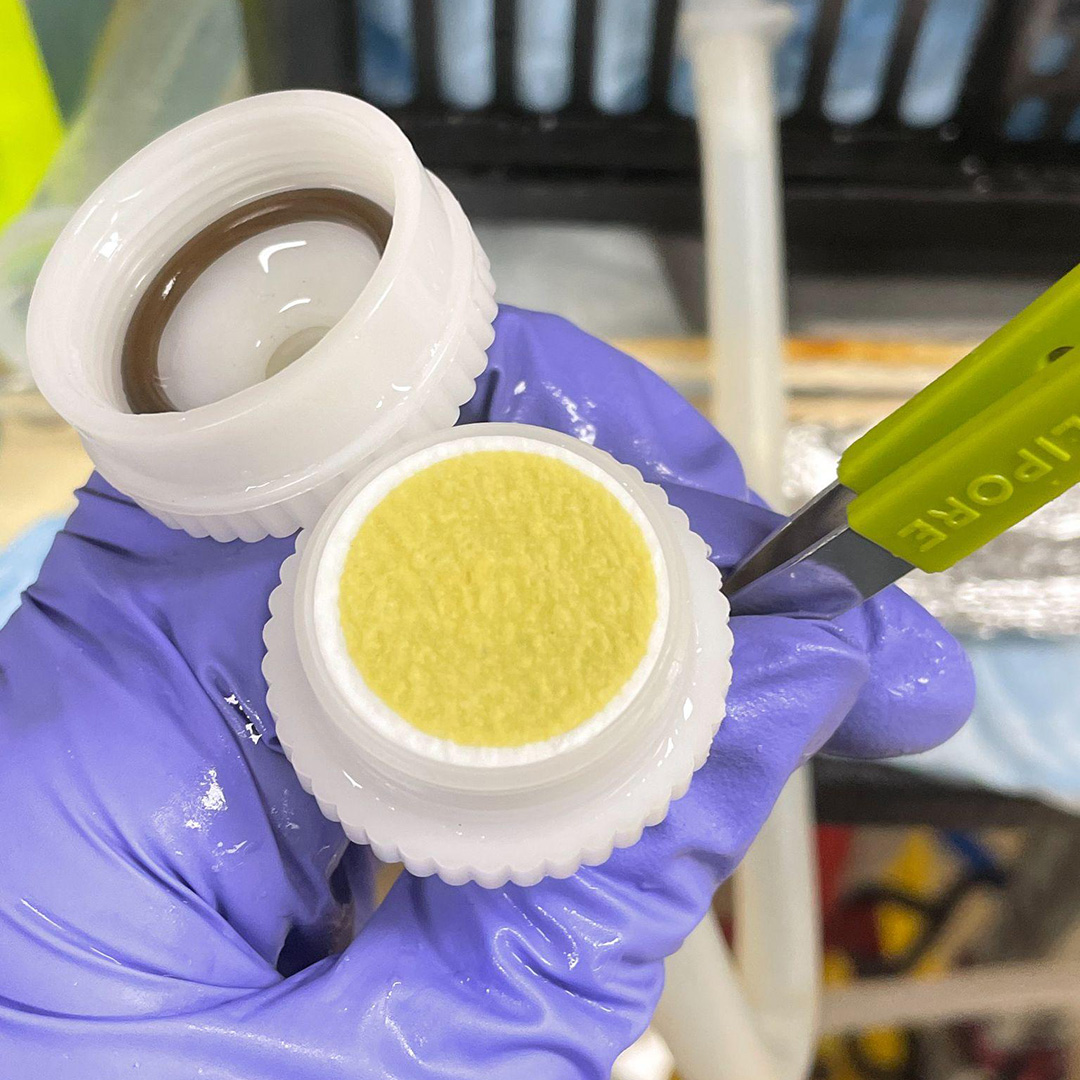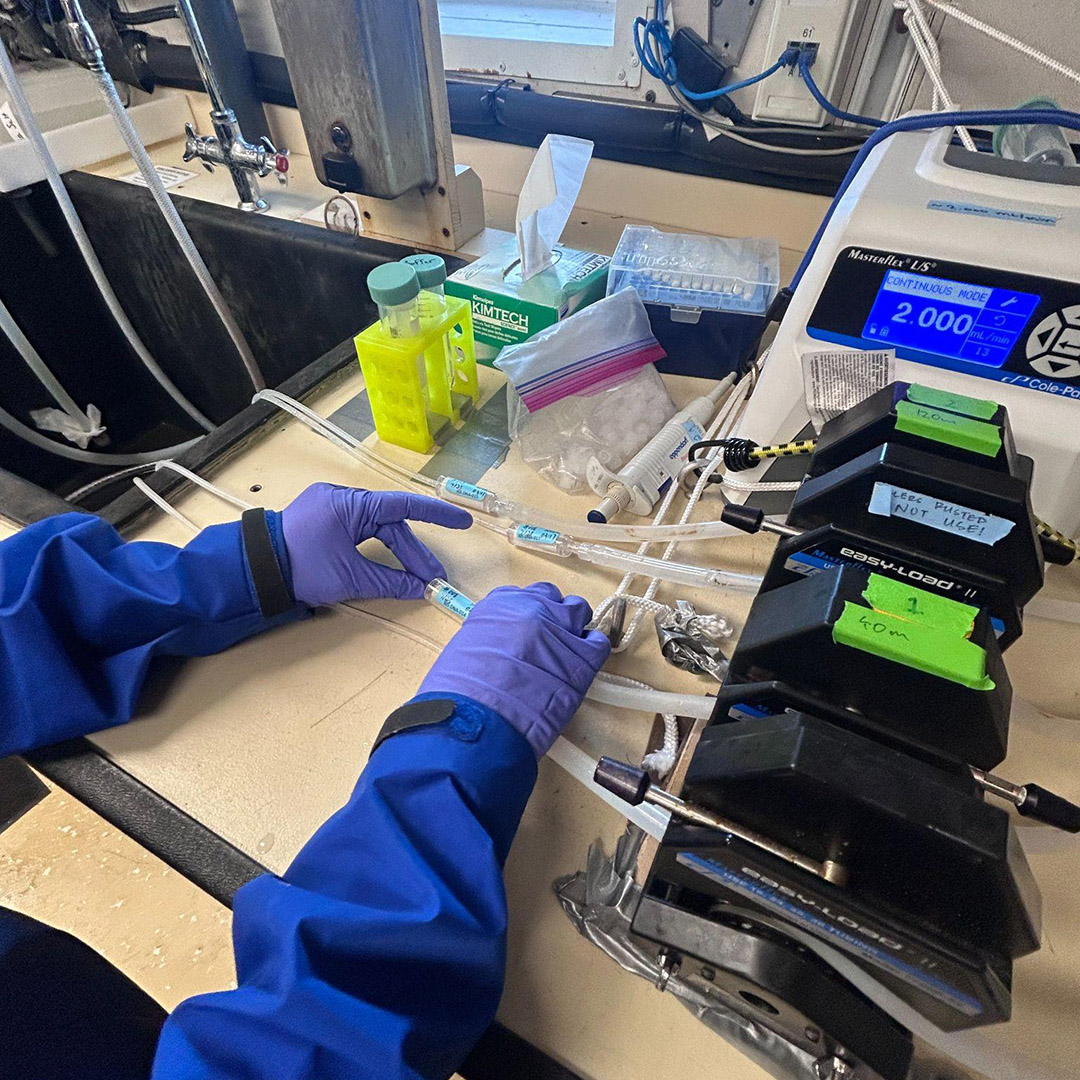GO-SHIP IO5: Bio GO-SHIP
I05 Log: Bio GO-SHIP
The Bio GO-SHIP initiative sheds light on the variability in particulate organic matter (POM) with changing oceans due to climate change. Alongside Yi Liu, we observe biological variability through POM and DNA analysis and focus on differences in elemental ratios of POM. The program is a fairly new addition to GO-SHIP but has provided vital information for multiple regions of the world’s oceans.
Seawater is collected and filtered 3 times a day, twice using the underway system and once with an individual Bio-cast. The sampling is split throughout the day, six 8L carboys are collected for POM, which is split into particulate organic phosphorus and particulate organic carbon/nitrogen. When using the underway system only one carboy is collected for DNA, but with the bio-cast 4 carboys are collected all at different depths. These depths include 5, 100, 200, and 1000 meters.
Sampling typically takes anywhere between 2 to 3 hours for the carboys to be fully emptied for both POM and DNA. Using an aspirator pump the water is vacuumed out through an assembly of tubes and adapters to connect the carboys to a filter cup that contains a 25 mm combusted filter which is what is collected then analyzed back on land. 5 mL of sodium sulfate, to get rid of any inorganic phosphorus, is syringed onto the POP filters before packaging. The same process is done with POC/N except Milli-Q water is used. The DNA process uses a peristaltic pump that is connected to a sterivex filter and once the water has been filtered through, 1000 mL of buffer solution is added.
~Nataly Pineda

